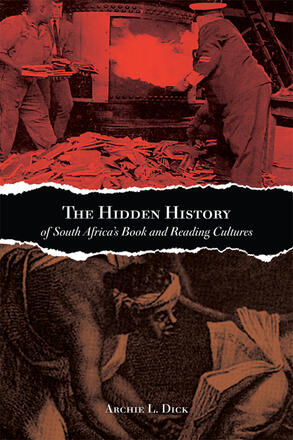
Description
The Hidden History of South Africa's Book and Reading Cultures shows how the common practice of reading can illuminate the social and political history of a culture. This ground-breaking study reveals resistance strategies in the reading and writing practices of South Africans; strategies that have been hidden until now for political reasons relating to the country's liberation struggles.
By looking to records from a slave lodge, women's associations, army education units, universities, courts, libraries, prison departments, and political groups, Archie Dick exposes the key works of fiction and non-fiction, magazines, and newspapers that were read and discussed by political activists and prisoners.
Uncovering the book and library schemes that elites used to regulate reading, Dick exposes incidences of intellectual fraud, book theft, censorship, and book burning. Through this innovative methodology, Dick aptly shows how South African readers used reading and books to resist unjust regimes and build community across South Africa's class and racial barriers.
Reviews
‘Archie Dick’s Hidden History offers us a fine example of a historian working in an imaginative way to show how, at various junctures in the South African past, book and reading cultures have arisen, survived or even thrived despite the ways in which controlling and repressive regimes have sought to destroy or limit the impact of reading and writing for their own purposes.’
- Charles van Onselen
‘This wide ranging book contains a treasure-trove of stories about print cultures in South Africa between the mid-seventeenth century and mid-1990s… Dick has produced a study that is informative as well as ambitious.’
- Stephanie Newell
‘Engaging and path breaking book…Rarely, if ever, is a work on South African history published that covers such a vast stretch of time, and is based on such a truly remarkable range of primary sources.’
- Gerald Groenewald
‘This is an inventive and engaging book that will do much to advance studies of southern African print culture and reading and their broader significance. Richly researched and lucidly written, the book will lend itself well to classroom use.’
- Isabel Hofmeyr
‘Trailblazing study.’
- Daniel Magaziner
‘The scholarship is exemplary, and the book opens up new areas of research.’
- Anthony Olden